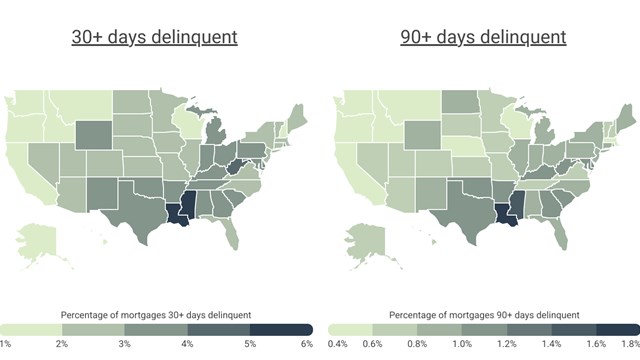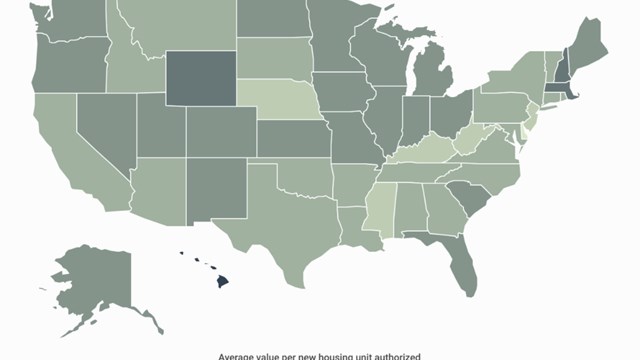
While not everyone who serves on his or her co-op or condo board needs to be an attorney or have an encyclopedic knowledge of the law, it never hurts to be aware of the important, often precedent-setting legal decisions being handed down by the courts. Some of these cases offer useful insights to boards, while others may ultimately have an impact on how buildings are run from day to day. Over the past few months there have been several such decisions—here are a few that may provide building administrators with some helpful ideas and information.
Allannic v. Levin
Lesson: The Business Judgment Rule Only Shields Board Members with Disinterested Independence
The board of 682 Sixth Avenue Housing Development Fund Corporation in Manhattan decided to extend the master lease for a space owned by the cooperative under the “80/20” rule provisions for commercial space. The shareholders sued the board and tenant claiming that all shareholders were not being treated equally under the extension, and that the board had breached its fiduciary obligation to them by extending the lease. The lower court dismissed the case, but the Appellate Division, First Department reversed and reinstated the case on the grounds that the board members were not disinterested members when they voted in favor of the lease extension and thus not necessarily insulated from judicial scrutiny under the Business Judgment Rule. The Business Judgment Rule is a powerful shield, but not for board members with conflicts of interest.
Holding Corp. v. Prince Fashions, Inc.
Lesson: Legal Fees and Costs May Be Recoverable If a Party Engages in Frivolous Conduct
This was a long, drawn-out litigation between the 542 Holding Corp. cooperative and its commercial tenant, Prince Fashions, Inc. The co-op was seeking to eject Prince from the premises for lease violations and aggressively asked the court for injunctive relief concerning Prince’s hazardous spray painting on the premises and unauthorized non-structural alterations. The co-op also argued that Prince had violated an order the court had issued a year earlier.
The court’s decision does not mention any lease provision stating that the prevailing party is entitled to recover legal fees and costs from the breaching party (a helpful contract provision for a prevailing party). It does however mention a statute allowing for the imposition of sanctions—including an award of legal fees for frivolous conduct by parties in the lawsuit. Without a statutory or contractual right to legal fees, each party is responsible for their own legal fees.
Consolidated Resources, LLC v.
210-220-230 Owner’s Corp.
Lesson: Lenders Beware—Don’t Try to Bypass the Board
In this case, the original purchaser of a co-op apartment pledged her proprietary lease and shares as security for a loan from the plaintiff, who was a private lender. There was no request that the cooperative board issue a recognition agreement or otherwise consent to the loan, so when the shareholder defaulted and tried to assign the lease and shares to the lender/plaintiff, the board refused to do so. Litigation ensued and the court sided with the board.
In determining the parties’ rights, the Appellate Division Second Depatment examined the co-op’s offering plan and proprietary lease and held that neither contained an exception from the board approval requirements with respect to the pledge of or loans secured by the proprietary lease and cooperative shares. The court stated that the pertinent references to the term “unsold shares” in the lease are embedded in the lease provision requiring the cooperative corporation to enter into a recognition agreement upon the request of the purchaser of the unsold shares and another provision regarding the secured party’s rights in the event of a loan default. According to the Appellate Court, there was no right in the secured party because there was no recognition agreement request.
Berkovich v. Mostavaya
Lesson: A Court-Approved Settlement Agreement May Not Be Enforceable if the Terms Violate Public Policy
This was a dispute between the plaintiff, who owned a Mitchell-Lama cooperative apartment, and the defendant, a subtenant who subleased the apartment. The parties made a settlement agreement in a landlord-tenant holdover proceeding which included the defendant’s promise to pay the plaintiff $690 per month for use and occupancy if the defendant did not surrender the apartment. The Appellate Term, Second Department approved the settlement and “So Ordered” the agreement.
When the defendant did not surrender the premises in a timely manner, the plaintiff sued them for money under the court-approved settlement agreement. The defendant claimed that the plaintiff apartment owner illegally sublet the apartment to them, and charged them excessive rent under the Private Housing Finance Laws.
The court agreed with the defendant that the sublet violated Department of Housing and Preservation (HPD) rules, but felt that the defendant had had the benefit of the apartment, and should be required to pay equitably for it. The court applied the Mitchell-Lama law—which expressly bars the collection of excess rents—and held that defendants cannot be required to pay more than the lawful approved rents. According to the court, “Since legislative proscriptions of the collection of excess rents are deemed to implement public policy, agreements—even those embodied in so-ordered stipulations—that provide for the collection of excess rents are void and unenforceable.”
Notably, the court recognized a cause of action for the return of overcharges collected, even though the court found that the Mitchell-Lama law does not expressly provide for such cause of action.
Katsam Holdings LLC v.
419 West 55th Street Corp.
Lesson: Sponsors Given Their Kralik, and now their Katsam
This is a decision in which the Appellate Division, First Department decided that the offering plan is binding on a cooperative as a contract. Based on that premise, the court held that according to the co-op’s offering plan provisions—which conflicted with the proprietary lease provisions—the sponsor properly designated Katsam Holdings LLC as a holder of unsold shares. This entitled the plaintiff to use the premises as a commercial unit and make alterations to it without board consent.
The decision arguably conflicts with the 2005 Court of Appeals decision in Kralik v. 239 East 79th Street Owners where the New York high court held that a sponsor’s compliance with the Attorney General regulations does not control whether a party is a holder of unsold shares. Rather, the court proclaimed that the cooperative corporation’s certificate of incorporation, proprietary lease and bylaws must be considered to determine whether a party is a holder of unsold shares. The Kralik decision assisted sponsors, and now Katsam arguably does as well. The Kralik court, however, did not examine the Attorney General regulation and offering plan in making its decision while the Katsam court based its decision on the offering plan which it called a contract between the parties.
Hamlet on Olde Oyster Bay Home Owners Assoc. Inc. v. Holiday Organization, Inc.
Lesson: Irrespective of the Martin Act, there are Viable Causes of Action Against Sponsors, their Members and their Professionals for Poor or Defective Construction
The plaintiff HOA, condominium and individual owners sued their sponsor developer, sponsor members and the sponsor’s real estate brokers, engineers and architects for a variety of claims because of—among other things—the shoddy construction of their homes and common areas.
With respect to the fraud claim against the sponsor and sponsor members, the court denied dismissal because while there is no express or implied private right of action under the Martin Act, “Private causes of action sounding in common-law fraud may rest upon the same facts that would support an alleged Martin Act violation.”
The Martin Act has been called New York’s “blue sky law,” and prohibits a broad range of fraudulent and deceitful conduct, including securities representing participation interests in condominium and cooperative apartment buildings. The New York Attorney General is charged with exclusive authority to enforce the Martin Act. Here, we see again that the courts are rejecting sponsor arguments that fraud (as well as breach of contract) claims are preempted just because the claims rest upon allegations that support a Martin Act violation.
The Second Department also refused to dismiss a negligent misrepresentation claim against the sponsor and sponsor members because “‘…Nothing in the clear import of the language of the Martin Act requires a conclusion that the Legislature intended to abrogate any common-law remedy arising from conduct prohibited under the act.’” The court also upheld a breach of fiduciary duty claim based on fraud which is subject to a six year statute of limitations and claims of breach of contract, fraudulent inducement, negligent misrepresentation and negligence/malpractice against the sponsor’s professionals. As for them, the court held that there was no evidence that the plaintiffs were not third-party beneficiaries of the professionals’ contracts with the sponsor.
Joseph G. Colbert is a partner with Kagan Lubic Lepper Lewis Gold & Colbert, LLP, specializing in the representation of cooperatives and condominiums.






Comments
Leave a Comment